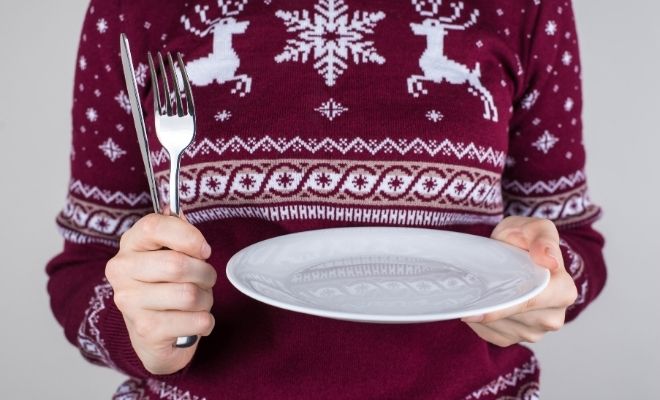Christmas arrives and the streets are filled with lights, meetings with family and friends begin, illusion is reborn… But no, not everything is happiness at Christmas. There are people who have a really bad time on these dates, either because they are alone, because they have recently lost a loved one, or because they suffer from an illness.
In this article in this article we want to focus on Christmas and Eating Disorders because, precisely, eating disorders make this time tinged with anguish for people who suffer from it. We have spoken with the nutritionist Paola Cóser so that she can give us some guidelines for both patients and family members. This is how you can manage a TCA at Christmas.

How Christmas affects a person with ED
Christmas is a different time in which we tend to get out of the routine, something that makes days more complicated than normal for people with Eating Disorder (TCA). Because? Paola tells us some of the reasons:
-
Many more plans are made
Christmas is a time for plans and those plans are usually mostly related to food. We meet friends and work colleagues to eat, we often have dinner with the family… “Christmas is associated with food and it is a time of great difficulty for people with an Eating Disorder,” says Paola. People with eating disorders often feel overwhelmed and stressed by feeling forced to eat or “peck” continuously outside the home on these dates.
-
More prohibited foods
The previous point is inextricably linked to a greater presence of unhealthy or prohibited foods for people with eating disorders. Nougats, polvorones… These sweets, for example, are present on almost all Christmas tables and their mere presence unleashes anxiety in those who suffer from an eating disorder, either because they feel pressured to eat them or because the temptation to binge increases.
-
Goodbye routine
Christmas is also coupled with vacations, free time, inactivity… This causes you to get out of the set routine and schedules and meal planning get out of control, something of the utmost importance for the recovery and treatment of people with eating disorders.
-
Christmas pressure on the weight
The idea is widespread that at Christmas yes or yes excesses are made and then in January it’s time to join the gym or go on strict diets to burn them off. This fear and pressure not to take one size more at Christmas makes people with eating disorders become obsessed, greatly worsening the symptoms of their disorder.
How to manage eating disorders at Christmas: important guidelines for patients
Given the difficulty that all of the above entails, it is very important to follow some very marked guidelines so that Christmas does not worsen the eating disorder or set back the progress made with the treatment:
-
Time planning
“To manage the relationship with food on these dates, the most important thing is to do a good planning. For example, do other activities or plans that stay away from food”, recommends nutritionist Paola Cóser.
It is also important to make good time planning, especially with regard to meal times, which should not stray too much from the usual established routine.
-
Plans beyond food
Christmas plans do not have to revolve around a restaurant, tapas or a plate of food. There are millions of activities that can be done at Christmas with both family and friends that can go a long way in taking your mind off your food obsession. Relaxed walks, board games, ice skating, an evening of Christmas movies…
In addition, Paola Cóser adds: “Tapas, appetizer or cocktail-type plans should be avoided. It is better to go to restaurants or cook menus with well-defined portions at home”.
-
Empathize with yourself
“If the person with ED cannot avoid their impulses on these dates, they must understand that it is part of the process and that little by little they will learn to manage their relationship with food,” Paola clarifies.
What is advised in cases in which someone has bingeed at lunch, for example, is to redirect the situation. Compensation should not be sought by not having dinner that day or by killing yourself exercising in the gym to burn off everything you have consumed.
How a family member or friend of a person with ED should act at Christmas?
The role that family and friends play in the recovery of someone with an eating disorder is essential, especially on dates like Christmas. Paola also gives us some very useful advice in this regard:
- Do not push: “It is very important not to put pressure on the person with eating disorders if they do not want to eat, since that would only cause compensatory or restrictive behaviors to return,” says Paola.
- Serve food on the plate: at Christmas meals it is very typical to serve dishes to share, something that does not benefit people with eating disorders at all. If you are in charge (or the person in charge) of organizing the Christmas menu and you have a family member with an eating disorder, it is best to serve the dishes individually (first, second and dessert) and adjust the quantities as necessary. The less copious the meals, the better. In addition, it is preferable that you all sit at the table to eat before you eat standing buffet style.
- Same menu for all people: “You don’t necessarily have to make big changes: a different menu, go to eat at healthier restaurants… The more the situation normalizes, the better,” recommends Paola.
- Avoid excessively long after-dinners: it is best to dedicate a reasonable time to food and then do other activities that do not have to do with it. In addition, it is important that there are enriching conversation topics at the table that do not revolve around food all the time.
- Remove the sources of Christmas sweets: at Christmas after-meals it is also very common to put a source of sweets (marzipan, nougat, polvorones) and for this source to remain on the table for hours and hours. The best thing is that only those that are going to be consumed at the moment are prepared and the rest is saved or removed.
- Empathize, empathize and empathize: put yourself in the other’s place. This is the real key to helping someone with an Eating Disorder, whether it’s Christmas or any other time of the year.
